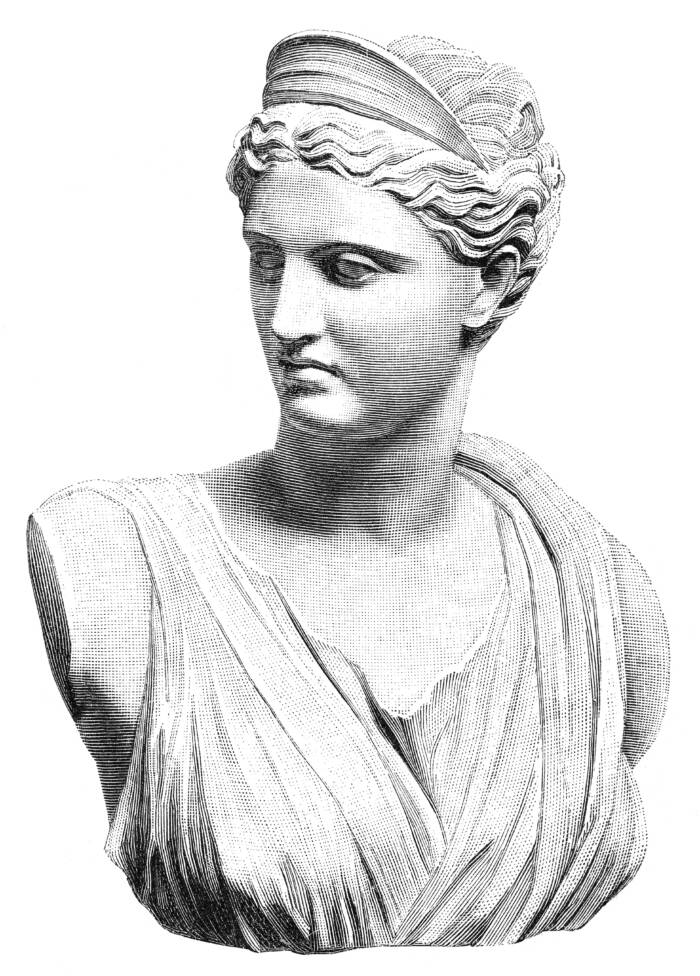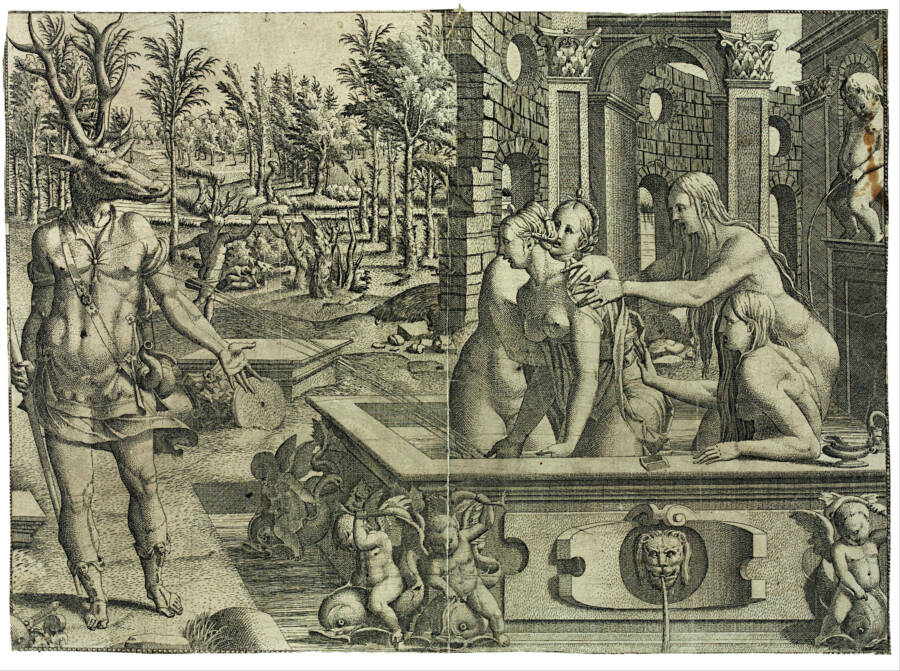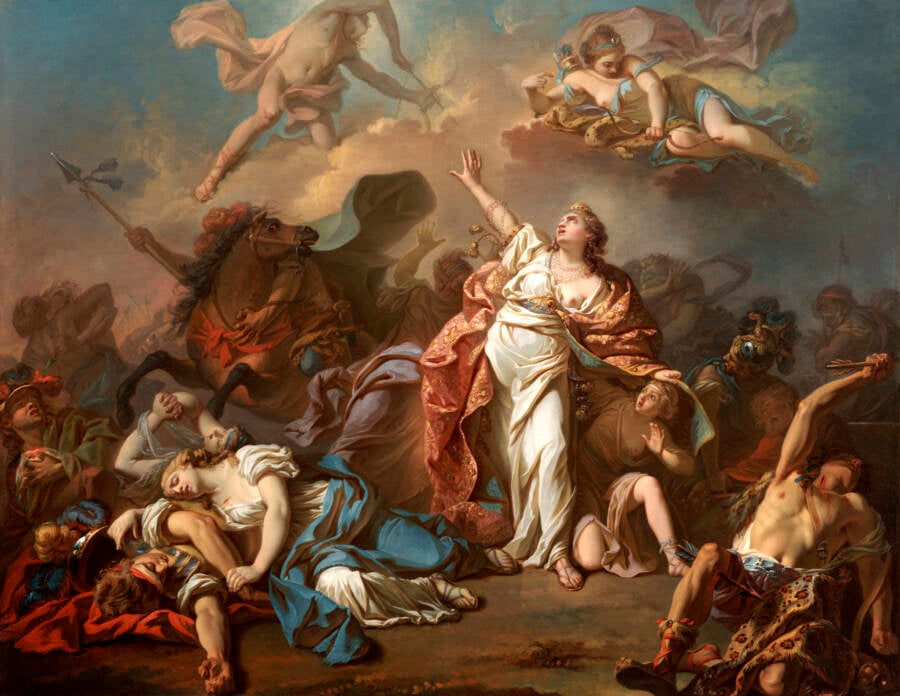Artemis, The Olympian Goddess Of The Hunt

FALKENSTEINFOTO/Alamy Stock PhotoThe Greek goddess Artemis, known to the Romans as Diana.
Another of the 12 Olympians, Artemis was the Greek goddess of the hunt, wilderness, and childbirth.
Born on the island of Delos alongside her twin brother Apollo, Artemis, ever the protector, was said to have assisted in her brother’s delivery — hence, her association with childbirth and the nurturing of life.
At a young age, Artemis was gifted a bow and arrows by her father, Zeus, and she soon became known as a formidable huntress among the Greek gods, roaming the forests with a band of nymphs. Her companions were sworn to chastity, reflecting Artemis’ own vow to remain a virgin. Artemis’ domain extended over all wild things and places; she was the guardian of nature and protector of the young, both animal and human. Her sanctuaries were often set in wild, remote areas and untamed landscapes.
The goddess was also a punisher of transgressions, as shown in the myth of Actaeon, a mortal hunter who, having stumbled upon Artemis bathing, was transformed into a stag and torn apart by his own hounds as divine retribution for his voyeurism.

Public DomainThe transformation of Actaeon after spying on Artemis in the bath.
There was also the myth of Niobe, a queen who boasted about her superior motherhood compared to Leto, Artemis’ and Apollo’s mother. In retribution, Artemis and Apollo killed all of Niobe’s children, after which they remained unburied for nine days while Niobe abstained from food due to her grief.
Niobe is often associated with The Weeping Rock in Mount Sipylus, Manisa, Türkiye, as it is said that when she returned home, her children slain, Niobe turned to stone and now stands as a testament to the sorrow that could be inflicted by the 12 Olympian Greek gods.

Public DomainNiobe attempting to shield her children from Artemis and Apollo, a painting by Jacques Louis David (1772).
Despite her ferocity among the 12 Olympian gods of ancient Greece, Artemis was also a nurturer — a protector of women in labor, ensuring their safety and the health of their offspring. This protective aspect was celebrated in various festivals, such as the Arkteia, held at Brauron, where young girls dressed as bears participated in rites of passage under her auspices.
The Temple of Artemis at Ephesus in modern-day Türkiye was also considered to be one of the Seven Wonders of the Ancient World, showcasing just how grand the worship of Artemis truly was.





